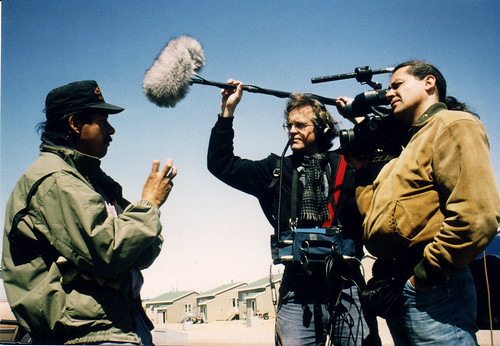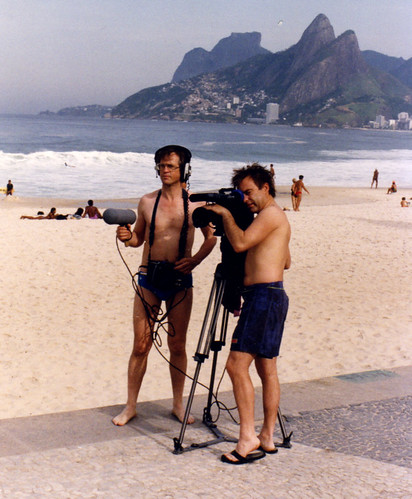
Film students sometimes ask theoretical questions which, while not uninteresting, are not particularly important to a practitioner. But Tom Eden from the documentary program in Rivière du Loup asked me this: is it a good idea to direct and to do camera and sound at the same time?
This is a big question, and I could write a book about it. Some pioneers of cinéma vérité did their own camera work (Pennebaker) or sound (Wiseman). Some of my colleagues whose work I admire do their own camera work: John Walker, Martin Duckworth, Ali Kazimi… and I do my own sound – as did one filmmaker who really inspired me, Barbara Kopple.
I think some of us took this approach years ago because we wanted to have a small crew and also to maximize the number of shooting days (by spending less money per shooting day.) But the combination of reduced budgets and accessible digital technologies have really brought this way of working to the fore.
These days there are filmmakers who do everything themselves – one example is Montreal filmmaker Eve Lamont, who just released a film on prostitution (L’Imposture), which she directed while doing camera and sound herself. An impressive achievement, considering some of the situations involved several different characters, sometimes in uncontrolled environments.
The other day I saw a very good film, Gasland (shortlisted for the Oscars) shot by the filmmaker – but the shooting is pretty awful. What saves the film is the personal narrative tone, the investigation and the excellent editing. Imagine if it had been well shot as well!
For me, doing camera work would have come naturally, as I have a background in visual arts and photography. But I have chosen to do sound because I find that it allows me to have a better overview of what’s going on, looking around to see what else is going on outside of the frame.
So… doing creative tech work while directing has many advantages, primarily reducing the size of the crew and controlling costs. But here is a caution. Directing really requires your full attention. So does camera work and sound recording. So if you wear two of these hats at the same time, you are inevitably compromising.
If you are on a tight production schedule, something will get less attention. So one key issue is time. Doing camera or sound is great if you know how to do it, and you are not in a rush! Another key is really knowing your gear. (You don’t want to be struggling with tech issues at the crucial moment when you need to reassure your characters, negotiate access, ask a key question…) And your relationship and communications with whoever else is working with you needs to be really tight.
Here is an old photo to show that directing and doing tech work can be fun: myself and DOP James Grey on a beach in Rio during the 1992 Earth Summit in Rio de Janeiro.
Thanks to Tobi Elliott for her help with the blog.
